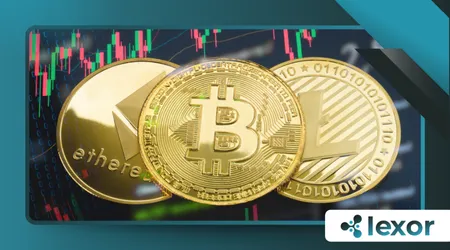Top 5 Beginner Mistakes in Cryptocurrency

The journey into digital assets is often a thrilling but treacherous one. Understanding the most common Beginner Mistakes in Cryptocurrency is the first step toward financial sanity in this volatile market.
This article dissects the pitfalls that routinely catch new investors, offering practical, battle-tested advice from a crypto veteran.
The digital finance revolution promises vast opportunities for wealth creation, yet it demands diligence. Too many newcomers confuse high volatility with easy profits, which is a dangerous miscalculation.
A responsible approach is essential Beginner Mistakes in Cryptocurrency
Trading Based on Social Media Buzz (The “FOMO” Trap)
One of the most destructive habits for new investors is allowing the fear of missing out, or FOMO, to dictate trading decisions.
This usually manifests as buying a coin only after a massive price surge. The new investor sees a 50% gain and thinks it’s a guaranteed winner.
In reality, they are often buying the top, providing liquidity for early, smarter investors to exit. A crucial lesson: volatility cuts both ways.
Read more: How Do NFTs Work and What Are They Used For?
Neglecting Security and Private Key Management. Beginner Mistakes in Cryptocurrency
The crypto world is unforgiving of carelessness. Unlike traditional banking, there is no “reset password” button for your decentralized wallet.
New users frequently fail to grasp the gravity of private key ownership.
Losing your keys means losing your assets permanently. The digital finance revolution promises vast opportunities for wealth creation, yet it demands diligence.
Furthermore, relying solely on exchange wallets for large amounts is an invitation for risk. Exchanges are centralized targets for hackers.
A recent Chainalysis report from mid-2024 revealed that over $1.5 billion in crypto assets were stolen or lost due to security breaches and scams globally in the first half of the year alone.
Beginner Mistakes in Cryptocurrency highlighting the ongoing threat.

Failing to Understand the Underlying Technology
Many beginners invest in a token purely because of its price action or “cool” name, without any research.
They don’t know the whitepaper, the development team, or the project’s utility. This is speculative gambling, not investment.
An informed investor recognizes that the technology and its real-world application are what drive long-term value. Ask yourself: what problem does this blockchain solve?
Read more: Exploring Solana: The Fast, Low-Cost Blockchain
Overleveraging and Chasing Quick Riches
The siren song of high leverage can be deafening for a newcomer. Using borrowed funds to amplify gains seems like a fast track to wealth.
However, even a small, unexpected market correction can trigger a liquidation, wiping out the entire investment.
Imagine your crypto portfolio as a ship on the high seas. Leverage is like hoisting an enormous sail in a storm.
It promises speed, but the slightest unexpected gust (market movement) can flip the vessel entirely. Stick to cash positions until you are truly fluent in risk management.
This avoids one of the most brutal Beginner Mistakes in Cryptocurrency.
Read more: What Is a DeFi Aggregator and Why Is It Revolutionizing Crypto Trading
Lack of Portfolio Diversification
Putting all your capital into a single, speculative altcoin is another classic blunder.
The mantra “don’t put all your eggs in one basket” is nowhere more relevant than here. If that single project fails, your entire investment vanishes.
A responsible crypto portfolio, even for beginners, should include a bedrock of established assets like Bitcoin and Ethereum, balanced with smaller, researched positions in promising projects.
Diversification mitigates the risk of permanent capital loss. They don’t know the whitepaper, the development team, or the project’s utility.
The table below illustrates a simple yet effective strategy for risk-adjusted entry:
| Asset Type | Recommended Allocation Range | Rationale |
| Foundation (BTC/ETH) | 50% – 70% | Lower Volatility, Established Network Effects |
| High-Cap Altcoins (Top 20) | 20% – 30% | Growth Potential, Demonstrated Utility |
| Micro-Cap/Speculative | 5% – 15% | High Risk, Potential for Exponential Returns |
An Argument for Education and Patience
The crypto market is a marathon, not a sprint. The relentless focus on short-term price movements blinds many to the revolutionary long-term potential of decentralized finance.
Read more: 5 Costly Cryptocurrency Investing Mistakes and How to Avoid Them
The biggest enemy is usually the investor looking for a quick exit.
A powerful example is the investor who sold their Ethereum in 2020 after a small gain, only to watch it surge exponentially over the following years.
Their impatience and lack of conviction cost them life-changing wealth.
Another original example involves a new investor who bought a memecoin after a celebrity tweet, pouring in their savings.
The price subsequently dumped 90% within a week because the celebrity “rugged” the project, illustrating the sheer danger of following unverified hype and one of the quintessential Beginner Mistakes in Cryptocurrency.
The most successful crypto investors are those who view market dips not as failures, but as discount opportunities to accumulate foundational assets. The market’s complexity requires continuous learning.
Is true wealth built overnight, or is it the result of meticulous planning and disciplined execution?
The reality is that avoiding these pervasive Beginner Mistakes in Cryptocurrency requires a fundamental shift in mindset from speculation to strategic investment.
Success in this frontier hinges less on luck and more on education, security, and emotional control.
This is the key to weathering the inevitable volatility and participating in the long-term growth of the digital economy.
Frequently Asked Questions
Q: Should I use a hardware wallet?
Yes, absolutely. For any significant investment amount, a hardware wallet (like Ledger or Trezor) is the industry standard for security. It keeps your private keys completely offline, protecting them from hackers.
What is “paper trading” and is it useful?
Paper trading is practicing trades without real money. It is extremely useful for beginners to test strategies, understand leverage, and get comfortable with exchange interfaces without risking capital.
How much of my net worth should I allocate to crypto?
A common, conservative rule of thumb suggests an allocation of 3% to 5% of your total investment portfolio, especially when starting out.
Only invest what you can comfortably afford to lose, due to the market’s high volatility.
